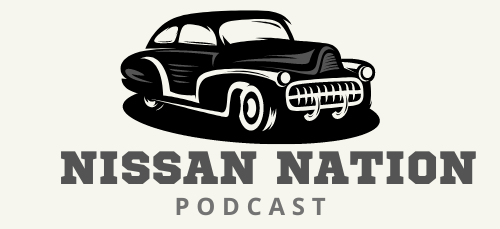Have you ever pressed the accelerator in your Nissan and suddenly heard a sharp whistling noise rising with engine speed? It can sound like a faint breeze or a high-pitched whistle that gets louder every time you speed up. This strange sound is more common than you might think, especially in popular Nissan models like the Altima, Rogue, and Sentra. While many drivers tend to ignore it, a whistling noise during acceleration often indicates something deeper happening under the hood.
This guide is written to help you understand exactly what causes that sound, how to fix it, and how to prevent it from returning. Whether it comes from a vacuum leak, a worn turbocharger, or a loose belt, finding the source early can save you from costly repairs later. By the end of this article, you will know the key reasons behind a Nissan whistling noise when accelerating and the best ways to restore quiet, smooth performance to your engine.
What Causes a Whistling Noise When Accelerating in a Nissan?
A whistling noise that appears only when you accelerate usually points to an airflow problem in your Nissan’s engine system. The sound occurs when air escapes, compresses, or moves through narrow gaps that should be sealed. Finding where it comes from is the first step to solving the problem.
One common cause is an air intake or vacuum leak. Cracked hoses, loose clamps, or damaged gaskets can let unmetered air enter the engine. As the air passes through these gaps, it creates a clear whistle. You may also notice rough idling, poor fuel economy, or weak acceleration. Checking and replacing damaged hoses or tightening the connections usually fixes this issue.
In turbocharged models, the sound may come from the turbocharger. A normal turbo makes a soft whine, but a loud or sharp whistle can mean a boost leak, worn bearings, or cracks in the intercooler piping. Ignoring this noise can reduce power and lead to costly turbo damage, so early inspection is important.
A worn or loose drive belt can also create a high-pitched sound that rises with engine speed. The noise often comes from the front of the engine bay. Inspect the belt for cracks and make sure the tensioner is working properly. Replacing a worn belt usually removes the sound.
Small leaks in the exhaust manifold or gasket can cause air to escape under pressure, producing a whistling tone. This may be mistaken for turbo noise and often comes with a faint exhaust smell or lower engine performance. A faulty PCV valve or dirty throttle body can cause the same effect by disrupting airflow inside the system.
Identifying the exact source of the whistle can take time, but paying attention to when and where it happens helps narrow down the cause. A whistle that increases with speed is a clear sign that air is escaping or restricted somewhere in the intake or exhaust system.
How to Fix the Whistling Noise
Once you have identified where the whistling noise comes from, fixing it becomes much easier. Some causes can be handled at home with basic tools, while others require a mechanic’s inspection. The key is to follow a structured process so you do not miss hidden leaks or worn parts.
Step 1: Inspect the Air Intake and Vacuum Hoses
Start by checking all visible rubber hoses connected to the air intake system. Look for cracks, holes, or loose clamps. Run your hand near each hose while the engine is idling; if you feel air movement or hear a slight hiss, that is likely where the leak is. Replacing damaged hoses or tightening loose fittings usually eliminates the sound.
Step 2: Examine the Turbocharger and Boost Lines
For turbo-equipped Nissan models, inspect the intercooler piping and turbo connections. Loose or cracked joints often cause a whistling sound under acceleration. Make sure the clamps are tight and the rubber couplings are not split. If the turbo itself is producing the noise and power feels reduced, it is best to have a professional check for worn bearings or internal damage.
Step 3: Check the Serpentine Belt and Tensioner
Open the hood and visually inspect the main drive belt. If it looks glazed, cracked, or frayed, replace it. Apply a few drops of water while the engine runs; if the sound changes, the belt is the source. Also check the tensioner to ensure it holds proper pressure on the belt.
Step 4: Look for Exhaust Leaks
If the sound seems to come from the rear or underside of the car, check for exhaust leaks. A small gap near the exhaust manifold or gasket can create a whistling tone. Start the engine cold and feel around the joints for escaping air. A temporary fix can be done with exhaust sealant, but long-term reliability requires replacing the faulty gasket or pipe section.
Step 5: Clean or Replace the PCV Valve and Throttle Body
A clogged PCV valve or dirty throttle body can disrupt airflow and produce a whistle. Remove the valve and shake it; if it does not rattle, replace it. Clean the throttle body with a dedicated cleaner to remove carbon deposits. This not only stops the noise but also improves throttle response.
Step 6: Test and Confirm
After repairs, start the engine and perform several acceleration tests. Listen for any remaining whistling noise. If it persists, the issue may involve deeper components such as the turbo bearings or intake manifold gaskets, which are best handled by a certified Nissan technician.
Following these steps systematically can help you eliminate the whistling noise efficiently and prevent unnecessary replacement of parts that are still in good condition.
Keep Your Nissan Running Quietly
Preventing a whistling noise from returning is all about consistent care and proper maintenance. Most of the issues that cause the sound develop slowly over time, which means they can easily be avoided with a few simple habits.
Schedule Regular Engine Inspections
Have your Nissan inspected every six months or according to the maintenance schedule. A quick check of the air intake, vacuum hoses, and exhaust system can catch small leaks before they become audible. Regular engine diagnostics also help identify minor airflow problems that are easy to fix early.
Replace Filters and Belts on Time
An old air filter restricts airflow and can increase pressure on the intake system, while worn drive belts can start producing high-pitched noises. Always replace these parts as recommended in your owner’s manual. Using high-quality replacements ensures smoother airflow and reduces vibration.
Clean the Air Intake and Throttle Body
Over time, dust and carbon buildup can narrow the airflow path, leading to a faint whistling sound. Cleaning the throttle body and intake system once or twice a year keeps the airflow steady and the engine performing efficiently. It is a simple step that prevents many common noises.
Use Genuine Nissan Parts
Aftermarket parts might not fit as precisely as OEM components, which can lead to air leaks or poor sealing. Choosing genuine Nissan hoses, filters, and valves helps maintain proper alignment and airflow, reducing the chance of whistling during acceleration.
Monitor Changes in Engine Sound
Every car develops a familiar rhythm. When you notice a new sound, especially a whistle or hiss, do not ignore it. Early attention saves you from costly repairs and keeps your Nissan running quietly and reliably for years.
By following these steps, you can minimize wear on your engine’s airflow components and avoid the frustrating whistle that often signals deeper mechanical issues.
Conclusion
A whistling noise when accelerating might seem minor at first, but it often signals that something in your Nissan’s engine system needs attention. Whether it is a small vacuum leak, a loose belt, or a worn turbo connection, identifying the problem early prevents further damage and saves you money in the long run.
As you have learned, the most common causes of the noise come from airflow or pressure inconsistencies inside the engine. Regular inspections, timely replacement of filters and belts, and the use of genuine Nissan parts can keep your car running quietly and efficiently.
If your Nissan still makes a whistling sound even after basic checks, it is wise to schedule a professional diagnostic service. A certified technician can locate hidden leaks or internal wear that might not be visible to the eye.
Your car’s sound tells a story about its condition. Paying attention to those small changes not only protects your vehicle but also ensures a smoother and safer driving experience every time you press the accelerator.
Have you experienced a whistling noise in your Nissan before? Share your experience and the solution that worked for you in the comments below.

